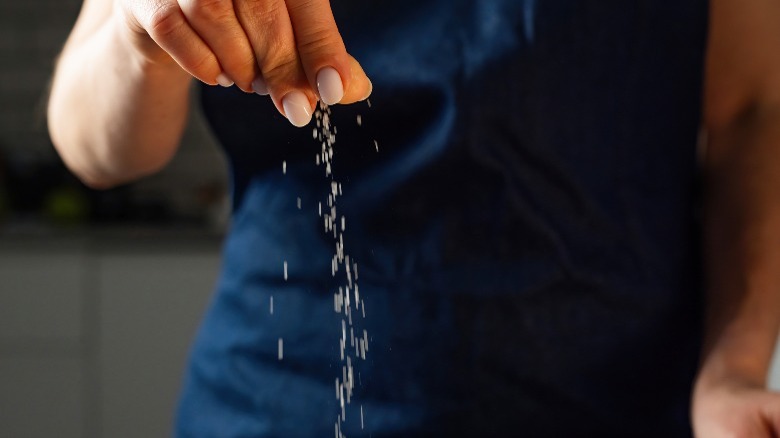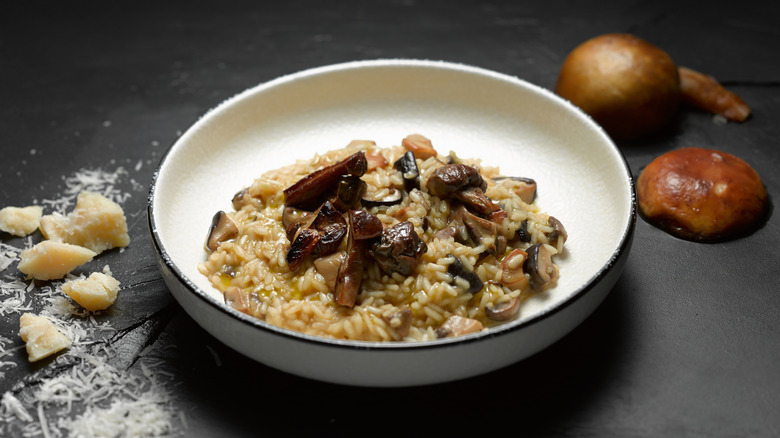The Salting Tip Stanley Tucci Uses For Unbeatable Risotto
Celebrated actor Stanley Tucci's third act as a food influencer seems to be going well. He hosted Emmy-winning food and culture series "Searching for Italy" and now has his own cookware collection with GreenPan. In fact, it was while feeding his hilarious mom some risotto in exchange for a review of his four-quart sauté pan that Tucci dropped a pro-level risotto tip he learned in Italy.
After lightly toasting (but not really toasting because it wasn't brown, as his mom pointed out) what looks like a pound of arborio rice, Tucci tipped in some white wine. While his mom stirred, Tucci said the Costardi Brothers, an Italian team of chef-siblings who specialize in the rice-based dish, taught him that now is the time to season the rice, and he proceeded to add two pinches of kosher salt.
For the same reason you salt pasta water, salting your risotto rice upfront ensures the grain absorbs maximum seasoning, layering in flavor and setting the scene for a flavorful and perfectly balanced dish.
Why salting the rice changes everything
When it comes to seasoning your food, the conventional wisdom is to salt as you go. That's why it seems strange that so many chefs insist you don't salt risotto until it's halfway or more through cooking. Seems like a major salt mistake.
It's true that adding salt so early breaks down the starch molecules, but to achieve creamy risotto, isn't that what you're trying to do using heat? And waiting until the end to season anything only results in superficial, slapdash seasoning. That's especially true with rice dishes, in which the individual grains of salt can't evenly coat all the individual grains of rice.
In contrast, seasoning the rice over heat just after adding a bit of liquid gives the salt ample time to dissolve, ensuring it distributes evenly throughout the rice as it absorbs the now-salty liquid. All this results in a more consistent flavor in the final product.
How to avoid oversalting
Like the mushroom risotto Stanley Tucci made, when it comes to risotto, other salty ingredients are usually around the corner. It often has stock of some kind, which is salted unless you make your own. There's also usually cheese, and there may also be other salty or briny ingredients, like anchovies or olives.
That doesn't mean you should avoid salting. You don't even have to torture yourself by standing over a hot stove making homemade stock to avoid salt. Just be mindful. To quote Tucci, "Now you're salting the rice, not the risotto."
You don't have to give the dish all the salt it needs upfront. You're just layering in the seasoning for the rice. Two pinches of kosher salt is plenty, and you can even start with one healthy pinch if you're unsure. The point is to create a strong base of flavor. You can fine-tune it later before serving.


